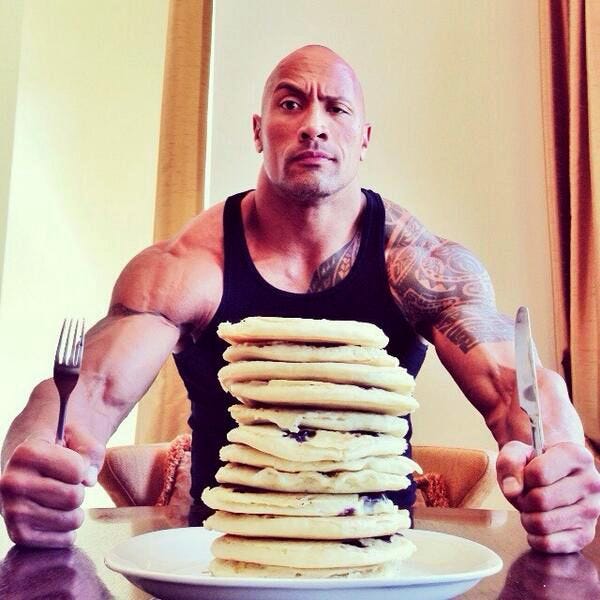Make Carbs Great Again
Embrace the most anabolic macro
The Highlander helps strength athletes and enthusiasts live stronger for longer. Join fellow Highlanders on our journey:
The Rebirth of Carbs
Everything in health and fitness seems to go in and out of style given enough time.
Eggs were bad, then they were good, now I think they’re bad again? (Truth: They’re good).
The most controversial health bad guy that could make a come back is carbs. With the trend toward Keto, and now Carnivore, diets that largely eschew carbs have been the popular thing for more than a decade.
Carbs are an easy enemy. Sugar makes us fat. Bread makes us fat. Pasta makes us fat. Anything can make you fat if you consume it in excess, which is easy to do for carbs. They taste great to most people, so they must be the enemy.
But the war on cabs is a mistaken battle. At least for strength athletes.
We often think of protein as the most important macronutrient for muscle gain, but carbs are a close second. Carbs serve two very important physical functions:
Carbohydrates are the most efficient way to restore muscle glycogen levels. Glycogen is the fuel we rely on for sustained intensity efforts like hypertrophic training and sprinting. If you want to optimize workouts to train functions that rely on glycogen, you should be eating carbs. Pure strength training may rely more on the creatine phosphate energy system, but almost every strength athlete I know uses higher rep sets to build strength and muscle. Even they are tapping glycogen stores.
Carbohydrates are muscle sparing. Research shows that carbs have an anti-catabolic effect. Sparing muscle from catabolism may not matter as much when we’re in a caloric surplus, but it matters a ton when we’re dieting to lose fat. When your body is in an energy deficit and energy demands remain high, muscle proteins may be burned along with fat stores, which could result in lean tissue loss.
If you care about strength, you should at least be open minded to carbs.
Yes, there are plenty of jacked and strong people who do Keto or Carnivore. One of my favorite is Shawn Baker, MD, a carnivore. Guy is the embodiment of strongevity:
You can get jacked and strong on a low carb diet, but it probably isn’t optimal for most people who aren’t physical freaks.
Proof? Look at Elite Bodybuilders
The way high level athletes use basic nutrition tools is always instructive to mere mortals. When money and fame are on the line, we can infer from their actions that they’re engaging in the most optimal practice given everything we currently know about the sport.
I know of zero world class bodybuilders that avoid carbs in their offseason or prep. Some research shows that a Keto diet may even blunt hypertrophic response relative to a western diet.
Dr. Mike Israetel adds:
So I would say keto is OK — not great — but it’s OK during peaking phases where volume is very low, and you have a very high-intensity effort as opposed to high volume,” says Dr. Mike Israetel, an assistant professor of nutrition, exercise science, and public health at Temple University and co-founder of fitness company Renaissance Periodization. “The higher the total volume of work you perform in training, the more you’re going to rely on glycogen and carbohydrate to potentiate that performance. In strength sports, because the work is typically not as high in duration, people can get away with lower carbs in general.
If you’re a strength athlete, especially if you’re interested in hypertrophy, you’re going to have better workouts if you incorporate carbs into your diet. Is it 5% better or 1% better or 10% better? I don’t know, but it’s probably enough to matter to most athletes.
Maybe you enjoy Keto and you feel good on it, so you don’t want to play with carbs. Totally fine. But we need to kill the idea that carbs are universally evil. Embrace carbs and enjoy their anabolic benefit. Don’t stubbornly avoid carbs because of diet hype.
Carb Timing
One of the most useful things I’ve learned to do with my carbs is time them around strength workouts, pre and post.
When I eat carbs before my workout, I ensure my glycogen stores are “topped off” to fuel my coming workout. When I eat carbs after my workout, I begin to restore depleted glycogen stores from the recent effort.
Carb timing is even more important when your dieting and carbs are limited. When I’m dieting, I try to eat more than half of my total daily carb goal around my strength sessions. So, if my daily carb goal is 250g, I might eat 50-60g pre workout and 75-100g post workout.
Bottom line: Carbs are great. Don’t eat them in excess, just as you shouldn’t consume fat in excess. Both will make you fat. Use your macros as tools to achieve your goals and turn carbs from a bad guy to a good guy. Stay stronger for longer.



